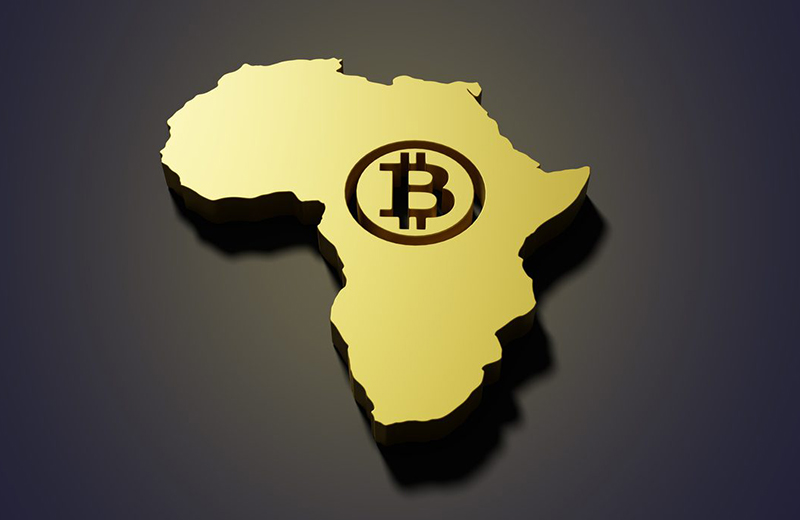
- As a continent with 54 countries, there is natural interest to see which country will have the most cryptocurrency users per population and become the crypto King
- For this discussion, a crypto King is a country which positions itself as a primary destination for cryptocurrency-related developments and activities.
- Regulation sets the stage for cryptocurrency operation within a territory.
Cryptocurrency is growing across the world and Africa is no exception. As a continent with 54 countries, there is natural interest to see which country will have the most cryptocurrency users per population to become the cryptocurrency-adoption-King. There have been many developments in Africa over the last couple of years that have brought propelled crypto popularity, with some factors setting it back notwithstanding. Which country will emerge as Africa’s crypto King and why?
What makes a crypto King
To arrive at a conclusion, there is a need to define a crypto King. For this discussion, a crypto King is a country which positions itself as a primary destination for cryptocurrency-related developments and activities. We will consider many things to gauge this.
1 State of crypto regulation
First and foremost is the cryptocurrency regulation within the country. Regulation sets the stage for cryptocurrency operation within a territory. The degree and extent of regulation will be our first pillar.
2 Adoption
Next, we will look at adoption by users. This is the percentage of the population that uses cryptocurrency.
Business buy-in is the degree to which businesses have enabled cryptocurrency transacting. The caveat on this one is that it depends on the regulatory environment. Businesses cannot be expected to go against the law, explicit or implicit, in their operations.
We will also examine the demographics of a country paying particular attention to population, internet penetration, financial inclusion and GDP per capita.
South Africa
South Africa is in most regards the current frontrunner for African crypto King. From a regulation standpoint, South Africa is very progressive and perhaps second to only the Central African Republic. The South African Revenue Service started taxing cryptocurrency as far back as 2018. Since then South Africa has also recognised cryptocurrencies as digital assets, introduced advertising standards for crypto operators and licencing under the Financial Sector Conduct Authority of South Africa.
Cryptocurrency adoption in South Africa
Cryptocurrency adoption is a little difficult to gauge without official data. Surveys question people but it’s difficult to tell how accurate survey results are. You can look at two different surveys months apart. The first stated South Africa had 22%, of crypto users in June 2022. Only months later another survey placed the adoption rate at 4%. That said we can only use the data we have and South Africa consistently appears in the top 5 list for cryptocurrency adoption in Africa.
Business buy-in
Where South Africa breaks out in the lead is Business buy-in. People across the country can walk into any of 1628 Pick n Pay stores and buy using cryptocurrency. Many innovations are coming out of South African startups in web3 and cryptocurrency. There’s also been massive integration of web3 concepts such as the metaverse into big South African Business initiatives.
South Africa Demographics
There are other factors that are synonymous with cryptocurrency such as internet penetration. South Africa ranks highly in internet penetration with just under 70% of users. South Africa has one of the Healthiest GDP per capita in Africa at US$5948. With a population of just under 60 million, South Africa also presents a large monetizable user base with considerably deep pockets.
All things considered, South Africa is certainly the frontrunner at present. The regulatory environment is a huge factor in this. Aided by the population size, economic power and infrastructure it may just hold on to this position. However, there are strong challengers.
Nigeria
The most populous country on the African continent is also a cryptocurrency hotspot. That is not entirely surprising. However, when we look at the regulatory space the cracks start to emerge. Nigeria has a hostile relationship with cryptocurrency and currently has an implicit ban on cryptocurrency usage in the country. On the positive side Nigeria has launched Africa’s only Central bank Digital Currency to date, eNaira. While the eNaira has struggled to find adoption rates close to those of other cryptocurrencies it is clear that there are many things the Nigerian government can learn from the CBDC launch.
Nigeria holds s bigger stake in the Crypto Ecosystem pic.twitter.com/zNnZ29iMtm
— Baron Chymaker.𝛑 (@chymaker) December 18, 2022
Cryptocurrency Adoption in Nigeria
In absolute numbers, no country has more cryptocurrency users in Africa than in Nigeria. However, Nigeria also has Africa’s largest population at around 213.4 million. Cryptocurrency adoption rates in Nigeria have the same measurement problems as other countries but generally range in the low teens. The Nigerian population has been very accepting of cryptocurrency, partly as an escape from the problems of the domestic currency the Naira. Nigeria continually tops statistics for cryptocurrency searches, usage, transacting and other user metrics.
Business buy-in
Another area that hamstrings Nigeria is the lack of business buy-in. As mentioned before this is informed by the regulatory environment. Businesses cannot be expected to break the law and those offering services largely do so offshore. The Bank of Nigeria has shown no signs of bowing on the issue which has unfortunately also hampered the adoption of the eNaira.
Demographics
We’ve already spoken about Nigeria’s large population. Nigeria’s GDP per capita is $2430 which ranks 18 out of 53 African countries. That is a large population with some room to monetize. Nigeria has a financial inclusion rate of 64.1%. So Nigeria could stand to gain a lot on that from regulating cryptocurrency. Nigeria’s internet penetration rate however is only 35.5% which presents a significant challenge in growing cryptocurrency adoption.
Nigeria is currently tailing at least South Africa but they do have an ace up their sleeve. A change in the attitude towards regulation would turn things around for Nigeria. Fortunately, this is in the hands of Nigeria. Infrastructure would also have to improve for Nigeria to lay claim to the Crypto King of Africa.
Kenya
The East African nation has for decades expressed its desire to be a technology hub of Africa. A lot of work has been put into this and the results are starting to show. Well if cryptocurrency adoption is anything to go by. While there is no specific law prohibiting the use of cryptocurrency in Kenya the Central Bank of Kenya has issued warnings in the past. Most recently, in November 2022, Kenya moved to impose a Capital Gains Tax on cryptocurrency dealings. If we look at South Africa’s example taxation came first there too.
Cryptocurrency Adoption in Kenya
When it comes to cryptocurrency adoption Kenya is always at the top of the bunch in Africa. It doesn’t matter the survey Kenya persistently appears in the top 3 for cryptocurrency users. Kenya as Africa’s mobile money leader was always likely to be more accepting of new ways of doing things.
Business buy-in
Without any implicit or explicit prohibition, Kenyan businesses have opened to cryptocurrency. Nothing like the widespread opening up in South Africa but a few willing enthusiasts have paved the way. On the organisation level, Kenya has become a location for many meetings and talks about cryptocurrency for East Africa.
Demographics
Kenya has a population of 53.01 million which puts them in the range of South Africa. One of the significant quagmires Kenya must deal with to lay claim to the crypto king is the low internet penetration rate of just 29.5%. Thanks to mobile money, Kenya has an impressive financial inclusion rate of 83.7%. Kenyan GDP per capita is at US$1705.
Kenya is well poised from a technology and citizen attitude standpoint with infrastructure being a significant letdown. The government needs to play catch up on regulation for a meaningful challenge.
Central African Republic
The first African country to adopt Bitcoin as a legal tender should be an automatic candidate for African crypto King. Unfortunately, the regulatory picture for the Central African Republic is a little on the murky side. The complicated Central Banking arrangement the country has, being a member of the central African States and sharing a central bank with 5 other nations, means the move to adopt Bitcoin has been opposed. Furthermore, the launch of their Bitcoin-backed Sango also met legal trouble with parts of the plan being deemed unconstitutional. Much will have to be sorted out for this small nation to be considered the crypto King in Africa.
Central African Republic Cryptocurrency Adoption
Information on the adoption of cryptocurrency in the Central African Republic is very difficult to come by. To be frank, most aggregators and publishers do not even have the CAR on their radar. While you will see many reports about the country adopting Bitcoin, launching its own crypto or the many detractors to the move.
Business buy-in
Business buy-in to cryptocurrency since its adoption has been very difficult to assess as well. The disconnect between the government and the central bank puts the CAR at a disadvantage as they do not have the luxury of controlling their own narrative.
Demographics
The demographic profile of the CAR also plays a part in explaining why little is known or said about the country. The country has a population of 5.46 million people. That’s fewer than most countries on this list have cryptocurrency users. Prior to Bitcoin adoption, internet penetration was 11% at best. The Central African Republic is often referred to as one of the least developed nations in the world. The GDP per capita of US$371 places only Burundi below them in Africa.
The move to adopt Bitcoin was bold and plans to forge ahead with the Sango are still despite some hiccups. The country has gone further than most but has an uphill task to challenge for Africa’s crypto King.
Ghana
For the most part, Ghana has moved quietly when it comes to cryptocurrency. Aside from the customary African government or central bank warning, Ghana has not interfered with cryptocurrency in the nation. Ghana has recently started popping up in surveys of cryptocurrency adoption with some claiming rates as high as 16%. The west African nation has been testing its CBDC, the eCedi, and recently decided to expand testing working towards a launch.
Cryptocurrency Adoption in Ghana
Depending on the source you will get different reports about cryptocurrency adoption in Ghana. What all sources agree on is that Ghanaian crypto adoption is on the rise. So much so that some sources consider Ghana ahead of South Africa and preparing to mount a challenge on Kenya and Nigeria.
Business buy-in
Due to restrictions business buy-in in Ghana is hampered. Like many other African countries however cryptocurrency has grown for peer-to-peer and remittance purposes. Ghana has seen many business developments in these two areas for crypto.
Demographics
Ghana has a population of 32.83 million people. The internet penetration rate of 53% is adequate. Ghana boasts a slightly lower GDP per capita than its West African fellow Nigeria at US$2015. Ghana has a strong financial inclusion rate of 68.2%.
Unlike many other challengers on this list, Ghana does not have a significant quagmire on its way to becoming the African crypto King.
Morocco
Morocco is undoubtedly a crypto leader in Africa but perhaps not for the reasons crypto enthusiasts would want it to be. Morocco was the first African country to place a ban on cryptocurrency and set off the domino in North Africa. The nation has a complicated legal system which places Islamic principles at the centre of government. Morocco also proposed that crypto regulation would arrive in 2022 but to date has not arrived. In all fairness to Morocco, the ban has been the only hostile act as the nation looks to be a technology-based one going forward. Crypto is at the centre of that.
Cryptocurrency Adoption in Morocco
The Chainalysis Global Crypto Adoption Index recently ranked Morocco as the 14th best country in the world and 2nd in Africa. The same report placed Nigeria 11th (1st in Africa), Kenya 19th (3rd in Africa) and South Africa 30th (5th in Africa). They use multiple metrics to calculate what they call a grassroots adoption index. Morocco is still under a cryptocurrency ban and that makes those figures all the more impressive.
Business buy-in
The presence of a ban makes business difficult to impossible to measure.
Demographics
Morocco has a population of 37.08 million people. An impressive 88.1% of these people have access to the internet. Morocco has a surprisingly low financial inclusion rate of 44%. Morocco has a GDP per capita of US$3291 which is fairly healthy.
Overall Morocco is in a good position to be an African crypto King. The main drawback is in the legal system which supersedes all other arms of the state.
Honourable mentions
Three African countries deserve an honourable mention here. Each for different reasons. Firstly Egypt ranked 24th in the world (4th in Africa) on the Chainalysis Global Cryptocurrency Adoption Index. Secondly, Togo previously ranked 9th in the world in the 2021 Chainalysis Cryptocurrency Adoption Adoption and is recognised as one of the fastest-growing De-Fi adoption countries. Finally, Namibia legalised the settling of transactions in cryptocurrency between willing parties. These countries are laying the groundwork and could soon find themself in the conversation.
Read: Morocco: Central bank to unveil a cryptocurrency regulation bill
- SEO Powered Content & PR Distribution. Get Amplified Today.
- Platoblockchain. Web3 Metaverse Intelligence. Knowledge Amplified. Access Here.
- Source: https://web3africa.news/2023/03/06/news/discover-africas-leading-country-for-crypto-which-nation-takes-the-lead/
- :is
- $UP
- 2%
- 2018
- 2021
- 2022
- a
- About
- Absolute
- access
- accurate
- across
- Act
- activities
- adopt
- Adopting
- Adopting Bitcoin
- Adoption
- africa
- African
- african crypto king
- African Startups
- against
- Aggregators
- ahead
- All
- already
- always
- and
- and infrastructure
- Another
- apart
- ARE
- AREA
- areas
- around
- arrangement
- AS
- At
- attention
- attitude
- authority
- Automatic
- back
- Ban
- Bank
- Banking
- Baron
- base
- BE
- become
- becoming
- before
- being
- below
- BEST
- between
- Big
- bigger
- Bitcoin
- bitcoin adoption
- boasts
- bold
- Break
- breaks
- brought
- Bunch
- business
- businesses
- buy
- by
- calculate
- call
- CAN
- candidate
- cannot
- Capita
- capital
- capital gains
- capital gains tax
- car
- Catch
- CBDC
- central
- Central African Republic
- Central Bank
- central bank digital currency
- central bank of Kenya
- CENTRALBANK
- centre
- certainly
- chainalysis
- Chainalysis cryptocurrency adoption
- challenge
- change
- citizen
- claim
- claiming
- clear
- Close
- come
- coming
- complicated
- concepts
- conclusion
- Conduct
- Consider
- considered
- continent
- continually
- controlling
- Conversation
- could
- countries
- country
- Couple
- crypto
- Crypto adoption
- Crypto ecosystem
- Crypto King
- Crypto regulation
- cryptocurrencies
- cryptocurrency
- cryptocurrency adoption index
- cryptocurrency ban
- cryptocurrency regulation
- Currency
- Current
- Currently
- data
- Date
- De-Fi
- deal
- decades
- decided
- deep
- Degree
- demographic
- Demographics
- depends
- deserve
- Despite
- destination
- developed
- developments
- different
- difficult
- digital
- digital currency
- Disadvantage
- discover
- discussion
- Doesn’t
- doing
- Domestic
- each
- East
- Economic
- ecosystem
- Egypt
- enabled
- ENAIRA
- enthusiasts
- entirely
- Environment
- Even
- example
- exception
- Expand
- expected
- explaining
- expressed
- factors
- fairly
- fairness
- fellow
- few
- Figures
- Finally
- financial
- financial inclusion
- Financial sector
- Financial Sector Conduct Authority
- Find
- First
- For
- foremost
- forge
- Fortunately
- Forward
- from
- further
- Furthermore
- Gain
- Gains
- GDP
- generally
- get
- Ghana
- Global
- Global Crypto
- Go
- going
- good
- Government
- grassroots
- groundwork
- Growing
- grown
- Hands
- Have
- healthy
- here
- High
- highly
- hold
- holds
- Hotspot
- How
- However
- HTTPS
- Hub
- huge
- impose
- impossible
- impressive
- improve
- in
- inclusion
- index
- informed
- Infrastructure
- innovations
- integration
- interest
- Internet
- introduced
- Islamic
- issue
- Issued
- IT
- ITS
- itself
- jpg
- kenya
- King
- known
- Lack
- large
- largely
- largest
- Last
- launch
- launched
- launching
- Law
- lead
- leader
- leading
- LEARN
- Legal
- LEGAL TENDER
- Level
- like
- likely
- List
- little
- location
- Look
- LOOKS
- Lot
- Low
- Luxury
- Main
- MAKES
- many
- Matter
- meaningful
- means
- measure
- meetings
- member
- mentioned
- Metaverse
- Metrics
- million
- Mobile
- Mobile money
- monetize
- money
- months
- more
- Morocco
- most
- MOUNT
- move
- multiple
- naira
- NARRATIVE
- nation
- Nations
- Natural
- Need
- needs
- New
- Nigeria
- Nigerian
- North
- November
- numbers
- of
- offering
- official
- on
- ONE
- opened
- opening
- operation
- Operations
- opposed
- organisation
- Other
- own
- part
- particular
- parties
- parts
- past
- Pay
- paying
- peer to peer
- People
- percentage
- perhaps
- persistently
- pick
- Pick N Pay
- picture
- Pillar
- Place
- Places
- plan
- plans
- plato
- Plato Data Intelligence
- PlatoData
- Play
- pockets
- popularity
- population
- position
- positions
- positive
- power
- preparing
- presence
- present
- presents
- previously
- primary
- principles
- Prior
- problems
- Profile
- progressive
- Prohibition
- proposed
- publishers
- purposes
- put
- Puts
- question
- quietly
- radar
- range
- ranked
- ranks
- Rate
- Rates
- reasons
- recently
- recognised
- referred
- regards
- Regulation
- regulatory
- relationship
- Remittance
- report
- Reports
- Republic
- restrictions
- Results
- revenue
- Rise
- Room
- s
- Said
- same
- Sango
- Second
- sector
- service
- Services
- set
- Sets
- setting
- sharing
- should
- show
- shown
- side
- significant
- Signs
- since
- Size
- small
- So
- some
- Source
- Sources
- South
- South Africa
- South African
- Space
- specific
- Stage
- stake
- stand
- standards
- start
- started
- Starting
- Startups
- State
- States
- statistics
- Still
- stores
- strong
- such
- surprising
- Survey
- synonymous
- system
- takes
- Talks
- Task
- tax
- Taxation
- Technology
- Teens
- Tender
- Testing
- Thanks
- that
- The
- the Law
- the metaverse
- The Source
- The State
- The West
- the world
- their
- Them
- These
- things
- to
- too
- top
- top 5
- Tops
- towards
- transacting
- Transactions
- trouble
- true
- TURN
- under
- undoubtedly
- Usage
- use
- User
- users
- warning
- Way..
- ways
- Web3
- WELL
- West
- What
- which
- while
- widespread
- will
- willing
- with
- within
- without
- Work
- working
- world
- would
- years
- You
- zephyrnet













